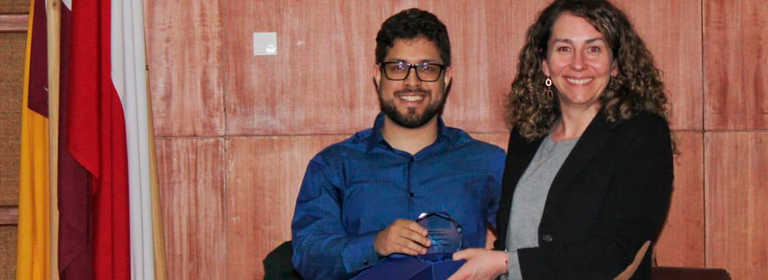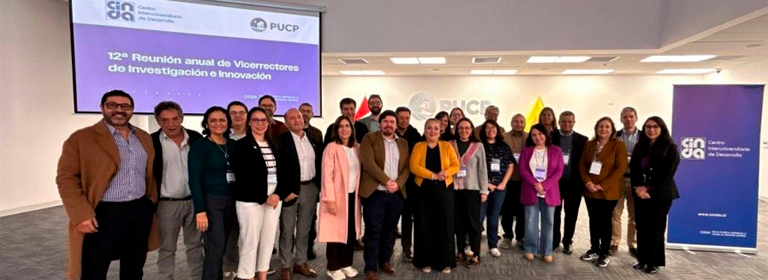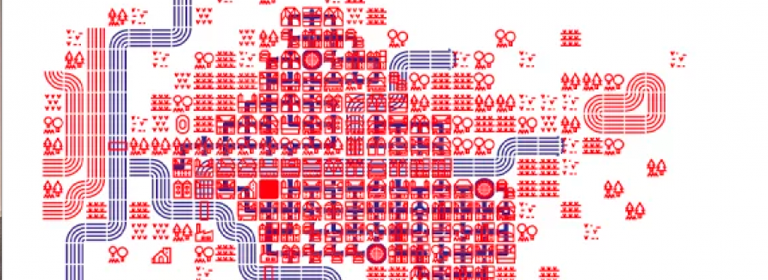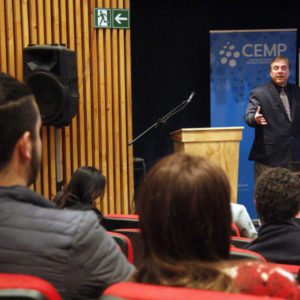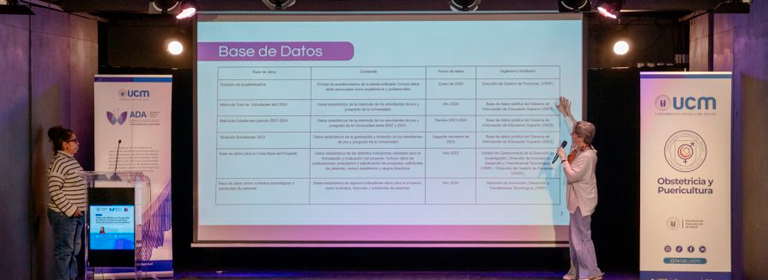The Colombian psychologist, Juan David Millán, received recognition at the last Chilean Conference on the History of Psychology, held in Valdivia.
 The Ph.D. student in Psychology from the Universidad Católica del Maule (UCM), Juan David Millán, received the «Young Researcher Award» from a prestigious association that gathers professionals in the discipline. The Chilean Society for the History of Psychology (SoCHiPs, by its initials in Spanish) granted the recognition at its ninth annual meeting, held by the Institute of Psychological Studies of the Universidad Austral de Chile, in Valdivia.
The Ph.D. student in Psychology from the Universidad Católica del Maule (UCM), Juan David Millán, received the «Young Researcher Award» from a prestigious association that gathers professionals in the discipline. The Chilean Society for the History of Psychology (SoCHiPs, by its initials in Spanish) granted the recognition at its ninth annual meeting, held by the Institute of Psychological Studies of the Universidad Austral de Chile, in Valdivia.
«This is the first time that the SoCHiPs grants this award; it is a recognition of the young trajectory,» said the 27-year-old Colombian psychologist.
After graduating from the Universidad de San Buenaventura de Cali, Millán received the award for the announced publication of an article on his authorship in the influential American journal ‘History of Psychology’, where he will present the first results of his doctoral research.
«My thesis is a work in the field of the history of psychology and analyzes the impact of the research of Wilhelm Mann, one of the pioneers of experimental and educational psychology in Chile,» said the professional, who moved to Talca two years ago to pursue postgraduate studies.
“This award is an honor for our doctorate program and a result of his work. The awarded article will be issued in the renowned journal History of Psychology, where it will be accessible worldwide since it is considered a benchmark by intellectuals linked to the history of the psychology field,» said the student’s thesis director and co-author of the paper, Ph.D. in Education Gonzalo Salas.
To the rescue of a pioneer
Millán’s research, focused on the experiments of the German Wilhelm Mann in Chilean schools, brings to light a figure unknown to most people.“Wilhelm Mann did some experiments with high school students and published, in German, these results in eight parts. I rescued that lost work and showed its impact in Germany; how the Germans read his work, quoted it, and pondered it,» asserted the doctoral student.The history of Mann in Chile began in 1903 when he was hired by the local government to be in charge, along with his colleague Heinrich Schneider, of the Departments of Philosophy at the Instituto Pedagógico. “The experiments that I studied were of student self-government. Mann allowed his students to organize themselves and to define what syllabus they wanted to follow, that also they could provide themselves a manual for coexistence and rules and to define how was judged a punishment”, explained Millán. «What he demonstrated—he pointed out —is that one must be careful, that the idea of self-government is an ideal and that, although it is a means for moral formation, it is not capable of totally forming the character of a student. For example, the fact that they saw their syllabus led to a reduction in knowledge. The individual was impoverished, and the mediocrity of the mass increased. As they were integrated into a collective, the mass was important, and the individual was lost.»
In 2023 will be issued the article that recounts this and other findings regarding the legacy of the man who was also rector of the Liceo de Aplicación and an academic at the University de Chile, with the collaboration of the Italian professor Giuseppina Marsico.

